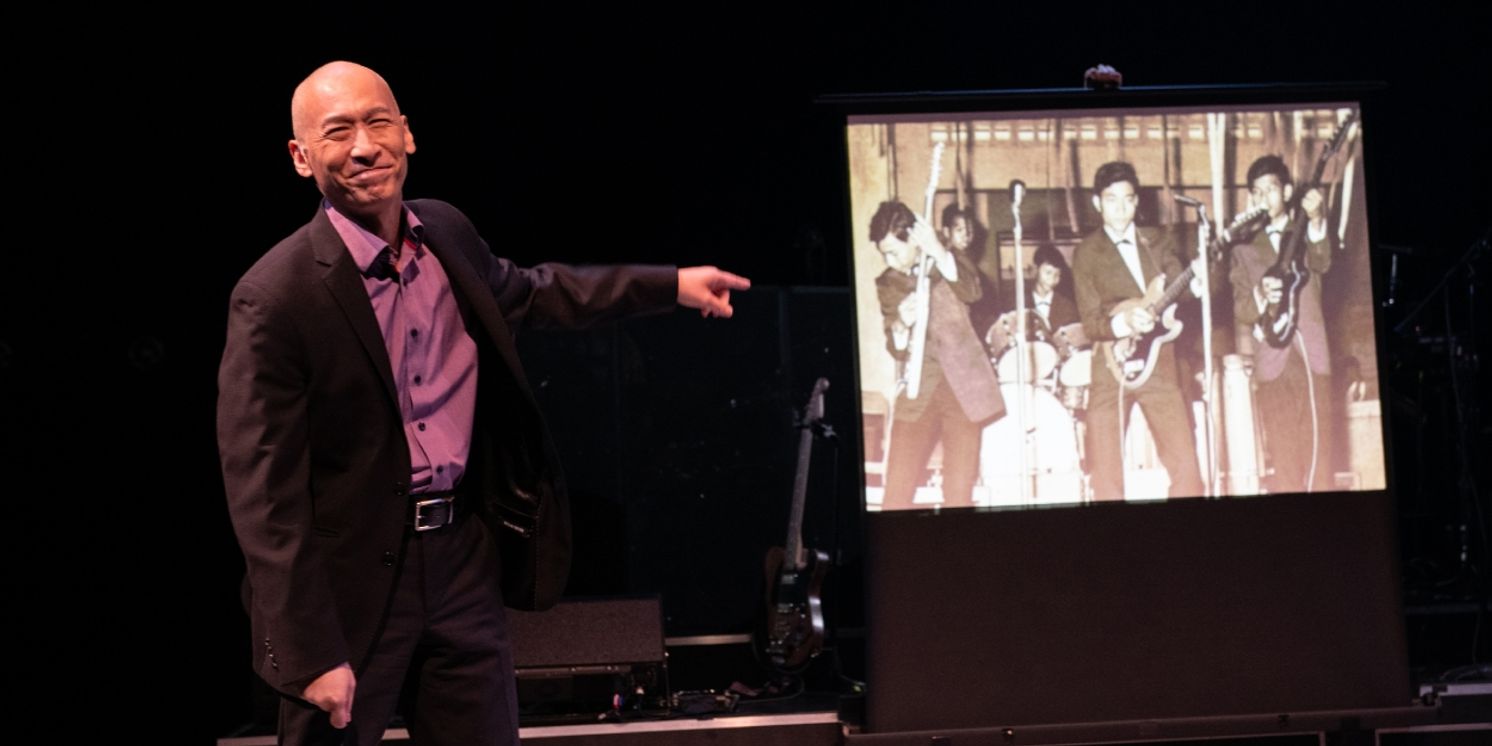Review: CAMBODIAN ROCK BAND at Kreeger/Arena Stage
Mixed-up media in Arena's co-production.

Why Lauren Yee interrupts her play, Cambodian Rock Band, with loud interludes of unfamiliar rock and roll numbers never becomes clear. To be sure, the play's protagonist once played guitar in a Cambodian rock band; but his more significant achievement consists of surviving Pol Pot's genocide of the Cambodian people and raising a Cambodian-American daughter who returns to her father's country as an investigator into its crimes against humanity. That gripping narrative deserves to unfold unhindered. Audiences who prefer plays to rock concerts deserve more information than "featuring songs by Dengue Fever."
Joe Ngo richly inhabits the role of Chum, a middle-aged father in Act I (set in 2008) and his earlier self, the young, aspiring musician of most of Act II (1970s) who doesn't really grasp why his family wants to leave their homeland until they can no longer do so. Ngo must morph from a seemingly simple Tiger dad to carefree youth, to prison camp inmate, and then back to a father whose inner life develops a more nuanced and realistic core when he faces sharing his experiences with his daughter. His great performance is nicely complemented by Brooke Ishibashi's as the daughter who learns a lifetime of information about her father and country of origin in just a few days. Tim Liu reveals his range in three different roles. And Francis Jue just mesmerizes--first as a savvy interlocutor (as if Thornton Wilder's Stage Manager in Our Town had a baby with the MC in Cabaret), but then as the evil and smarmy overseer of S21, the Auschwitz of Cambodia.
Takeshi Kata (Set Designer) seems to have seen S21 (There was a documentary film with that title in 2003.); the bare walls in Act II are perfect as is the generic hotel room in Act I where Chum visits his daughter. Kata represents 21st century Phnom Penh with a vivid overhead mix of neon, corporate, and grubby local signage. Linda Cho's costume designs also know their places and support Arena's 2.5 hour production, which runs through August 27; there was indeed a global epidemic in the 1970s of print shirts for men that often resembled wallpaper for downmarket ladies rooms. David Weiner's lighting and Mikhail Fiksel and Megumi Katayama's sound designs offer unobtrusive utility until it's time for the rock concerts. Then they turn the amplifiers past pain and shine walls of lights into the audience's eyes so that they can no longer see the show. Director Chay Yew joins the playwright in never clarifying what that is meant to contribute. Yew might have mitigated the sensory overload or thought of a way to share translations with the audience of several songs sung in Khmer, but he does not bring his considerable experience to such service.
This season alone, theatre audiences have again demonstrated their willingness to offer rapt attention when such playwrights as Sir Tom Stoppard (in Leopoldstadt) and Moisés Kaufman and Amanda Gronich (in Here There Are Blueberries) explore and explicate real-life horror stories of the past century. The author and director of Cambodian Rock Band work against depicting for an audience Cambodia's horror story with the undistracted weight and respect it ought to have.
(Photo by Margot Schulman)
Reader Reviews
Videos

